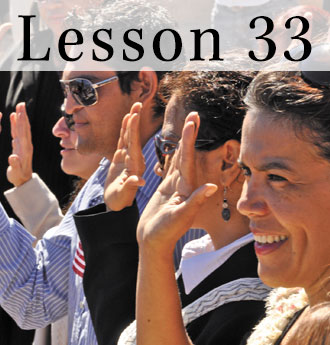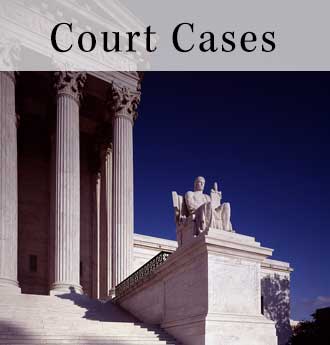Lesson 33: What Does It Mean to Be a Citizen?
How have the natural rights philosophy and classical republicanism influenced American ideas about the rights and responsibilities of citizens? (Video)
Influence of classical republicanism and natural rights philosophy on ideas about citizenship; differences between the philosophies regarding the balance of individuals and community; natural rights and negative liberty; classical republicanism and positive liberty; classical republican view of community; natural rights and factions; focus of the Constitution.
Student Questions: Unit 6, Lesson 33, Sections 1-4 (pdf download)
How can civic virtue and self-interest co-exist? (Video)
Coexistence of civic virtue and self-interest; role of religion in regard to citizenship; Tocqueville and self-interest in the United States; ?enlightened self-interest."
What changes have taken place since the Founding regarding citizenship and state and national identity and sovereignty? (Video)
Changes in ideas of citizenship since the founding; colonists as British subjects; attachment to states rather than national government; effect of the Civil War on citizenship; Fourteenth Amendment defines citizenship; defining Native American citizenship and sovereignty; federalism and the definition of the legal rights and obligations of citizenship; contemporary tensions between national unity and state sovereignty.
What are some current issues regarding citizenship? (Video)
Criteria for naturalization or citizenship; issue of illegal aliens' applications for citizenship; citizenship of Native Americans and Article I, Section 8; sovereignty of Native American tribes; dual national citizenship; loss of citizenship; rights of citizens compared with those of permanent residents; issues regarding the right of resident aliens to vote; citizens' responsibilities to undocumented immigrants; issue of protections for undocumented immigrants in the Bill of Rights.







